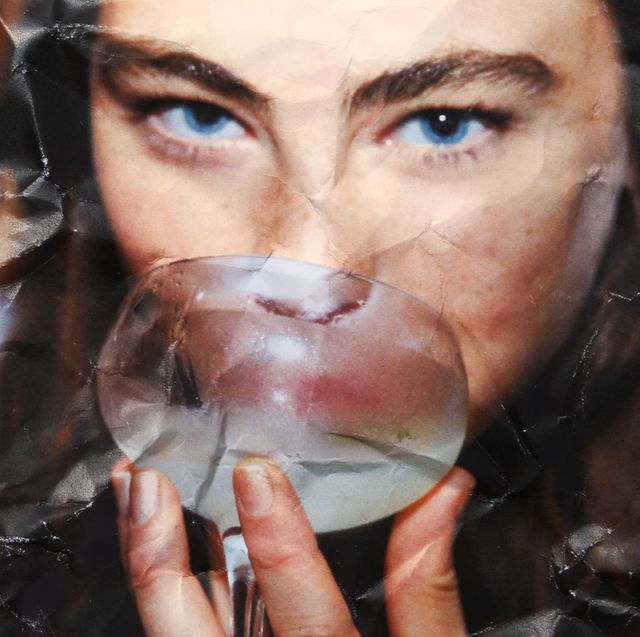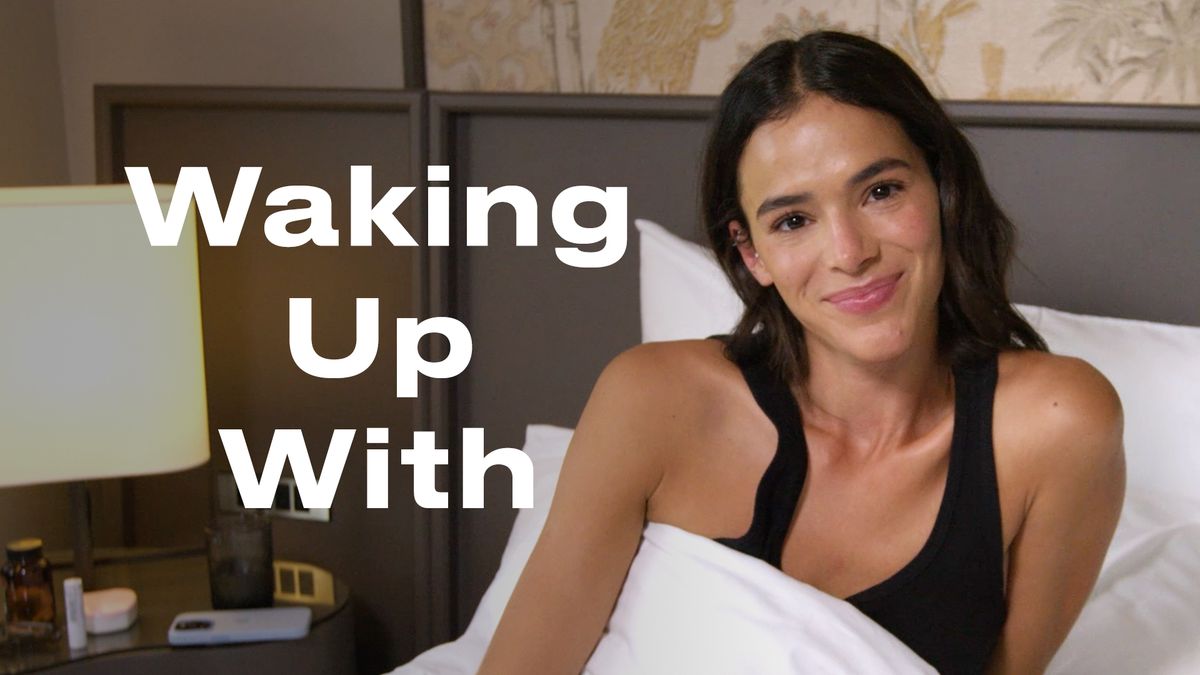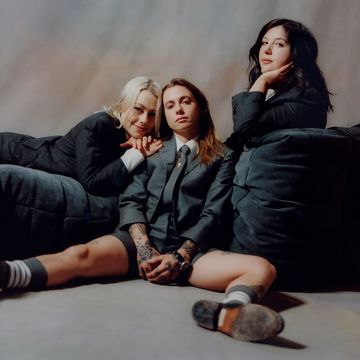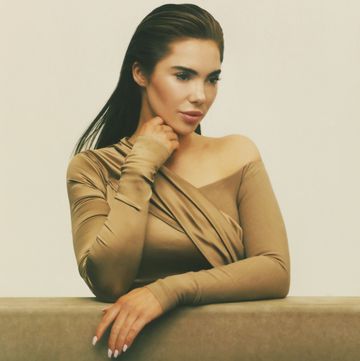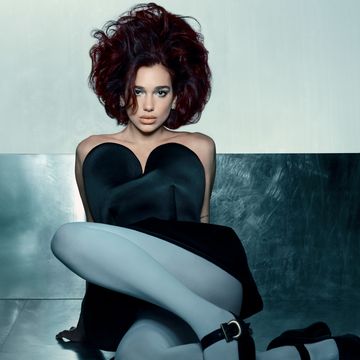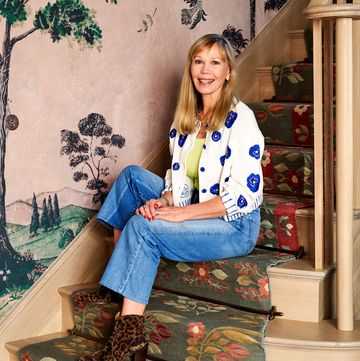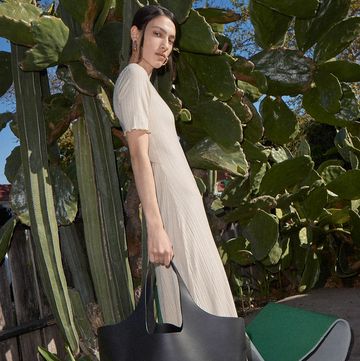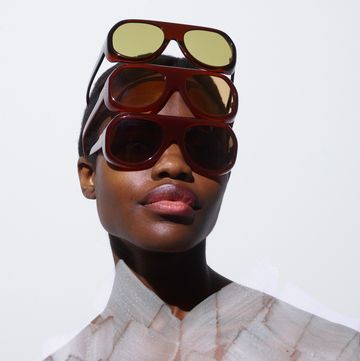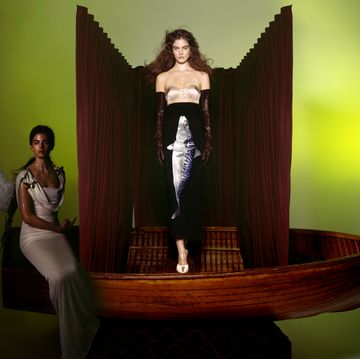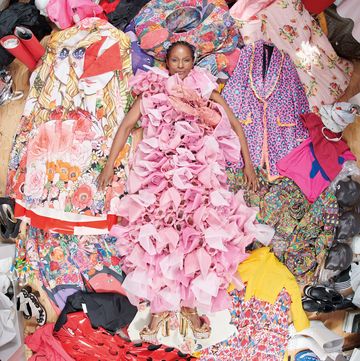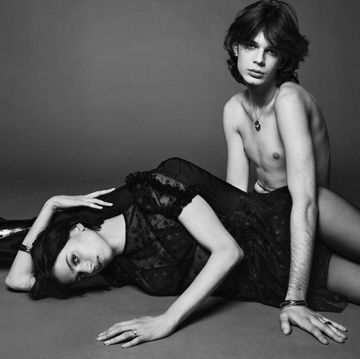I had an epiphany last summer: Drinking sucks. I was standing in a klatch of couples at a seaside cocktail party, everyone yakking about vacation plans and their children’s sports teams. I looked at my friends’ faces reddening from drink, the sweat on the men’s upper lips, the women hoisting their big goblets of wine to their lipsticked mouths. Everyone was talking too loud, and nobody was really saying anything. I was no different, clutching my wine, aggressively searching for my moment to jump into the double Dutch of conversation.
I’m exhausting, I thought. This party is exhausting. How many parties had I been to? Hundreds and hundreds. How many glasses of wine had I downed? Thousands and thousands. Teenage keggers in the woods, swanky soirees, backyard BBQs, book parties, frat parties, birthday parties, holiday parties, moms’ nights out, networking events. What had it all amounted to? Not to mention all the time spent sitting on my couch, splitting a bottle with my husband, vacantly watching TV—or parked at a bar with a girlfriend, nursing cocktails and mostly complaining to each other. It was a tale told by a desperate housewife, full of small talk and rosé, signifying nothing. It was like semantic satiation—that phenomenon when you repeat a word so many times it dissolves into meaninglessness. Though I didn’t know it at the time, I am apparently part of a trend. As yoga and meditation have arrived at the locus of mainstream culture—and juice fasts and abstemious diets like the Whole30 have gained popularity—a new group of seekers has become interested in an alcohol-free lifestyle, along with a phalanx of party promoters and life coaches catering to their newfound sobriety. At the same time, our culture seems to have reached a peak of alcohol saturation: A report published in August in JAMA Psychiatry found that alcoholism rose a shocking 49 percent between 2002 and 2013. In the study, one in eight American adults met the diagnostic criteria for alcoholism. And the Centers for Disease Control estimates that 88,000 Americans a year die from alcohol-related causes (more than twice the number of deaths from opiates).
For me, this wasn’t the first time I’d considered breaking up with booze. I remember a similar moment in my late twenties, when I tottered out of a club (where, randomly, my friends and I had been dancing in a VIP lounge with Shannen Doherty and a leering middle-aged Italian fashion photographer) to bum a cigarette from the bouncer and, looking out on the empty, wee-hour Manhattan streets, realized, with total certainty, “I’ve outgrown this.” I hailed a cab and went home, my party-girl days behind me. I started dating my husband soon after, and my drinking habits settled into a more “adult” pattern—a little bit, most days, with dinner rather than weekend-only blowouts. I stopped imbibing altogether during my pregnancies and the early months of round-the-clock nursing that followed. Each time I resumed, I’d feel hyperaware of alcohol’s effects—and of how desperately I’d been craving a glass of something to soothe my frazzled new-mother nerves—and wonder if I’d been better off sober.
But study after study seemed to point in the opposite direction, showing that people who gave up drinking or never drank were often as unhealthy as alcohol abusers. It was the tyranny of the U-shaped curve: Drink a little bit of alcohol, and you had greater heart health and a lower incidence of diabetes and stroke. You were a more reliable employee and earned a higher income. But the people on either end, who either didn’t drink or drank too much, had higher rates of morbidity and mortality.
As one researcher explained to me years ago, alcohol was a drug—and a powerful one at that. Moderate drinkers took the correct dose—one that eased their stress and increased their heart health. Teetotalers, on the other hand, missed out on the drug’s benefits. Abusers were overdosing.
I took careful note of the CDC’s definition of moderation and tried to stay within those guidelines. For women, the government recommends no more than one shot of hard alcohol, 12 ounces of beer, or one 5-ounce glass of wine a day (and you can’t save up and have two or three drinks on the weekend; it’s one per day, no excuses). For a decade, I more or less stuck to that prescription. I loved my wine time.
I’m not sure what prompted my abrupt disenchantment. Looking back, I was definitely depressed last summer. I’m a feminist and a progressive; it hurt to watch the news—and yet I gorged on it. If Twitter were a cocktail, I would have drunk myself to death before the primaries were even over. As the existence of facts became a subject of partisan debate, I’d grown distrustful of any filter between myself and reality. Alcohol seemed like a gauzy scrim, distorting the edges of my perception, making me sleepy (and messing up my actual sleep). I needed to keep myself sharp, in fighting shape.
I launched into one of those “give up everything at once,” Paleo-style diets: no sugar, no gluten, no dairy, no grains, no alcohol. And I quickly discovered the truth about myself. I was a junkie who maintained her emotional equilibrium through an elaborate doping schedule of coffee, bagels, Raisinets, M&M;’s, and red wine. Without coffee, I couldn’t think of a reason to get out of bed. Without bagels, the only time I wasn’t thinking about bagels was when I was thinking about bagel chips. Without chocolate, I couldn’t sit at my desk and write. Without alcohol, I couldn’t relax in the evening and turn the volume down on the furious, rabid rabbit who jabbered in my brain all day, telling me what a hash I was making of my life. I’d wake up at 3 A.M., and there would be Bunny, pestering me for a bagel and whispering, with amphetamine glee, that nobody truly loved me.
This went on for the duration of the program. There was no euphoria or burst of vibrant health. I got in a terrible fight with a close friend. I got a bad cold. Grilled chicken and sweet potatoes began to make me gag. On the night Donald Trump was elected, I was seven and a half weeks into the eight-week diet. I was covering Hillary Clinton’s party-cum-wake, and somewhere around midnight, after I helped a Democratic aide having a full-blown panic attack in the bathroom, I drank a glass of wine. The next morning, running on about an hour of sleep, I drank coffee and ate a goddamn bagel and leftover Halloween candy while I filed my story. Never has anyone eaten Almond Joys with such nihilism.
It was a dark and stormy night for the next month or so. I jumped on and off the wagon. But I found wine didn’t work like it used to. I didn’t feel relaxed and content with a glass in my hand. I felt like I wanted to smash every window in my house and howl with grief into the quiet streets of my neighborhood.
My husband took me for some R&R; on a sunny island. Away from the clamoring voices of my children and social media, I considered my foulness more carefully. I lifted the ragged, pulsating mass off my solar plexus and examined it like a faceted gem. How had I not noticed I was dragging this ugly thing around with me for so long?
Why was I so unhappy? What was I so pissed off about? Where did all these feelings of worthlessness and shame come from? The triumph of misogyny had been a blow, but it wasn’t the crux of the matter. The real problem was me—or, rather, Bunny.
Bunny was always all, “Work harder, stop complaining. Suck it up, buttercup. You look fat in that. You’ll sleep when you’re dead. All your friends are more successful than you are. Don’t look at me—you’re the one who had four kids. If you don’t show up, you won’t have any friends. You’re such an ungrateful whiner. Meditation? Yoga? Sex? You don’t have time for that crap. You are the worst time manager. Your house is a mess. You’re behind at work. Do something about your hair. Take that off! Mutton dressed as lamb! God, you look old.” Some people have inner children. I have an inner Bela Karolyi, but more abusive. And a bunny.
Wine (and sugar and coffee) made life on this anhedonic treadmill tolerable. They were painkillers that helped me stick the landing despite my injuries. Yes, I was taking the “correct dose,” but—wait a second—why was I vaulting on a sprained ankle to begin with? (Fun fact: Did you know that the 1996 U.S. Olympic gymnastics team would have beaten the Russians even if Kerri Strug hadn’t vaulted on her injured ankle? It was gratuitous!) The more I became aware of the spiritual and physical exhaustion I was self-medicating, the less it seemed like a healthy choice to carry on as I always had. Drinking wasn’t really my problem, but I found it intriguing how removing alcohol (and other substances I was consuming in supposedly perfectly healthy amounts) revealed this chasm of misery.
And speaking of how healthy moderate drinking is—it seems the claims may have been somewhat overstated. First of all, alcohol is a known breast carcinogen. The effect is relatively mild compared to other carcinogens, but any alcohol consumption increases breast cancer risk. Roughly one in eight American women will be diagnosed with breast cancer in their lifetime. According to the National Cancer Institute, for every 10 grams of alcohol women drink a day (the equivalent of a little less than one drink), they raise their cancer risk by about 7 percent. For the average American woman, this means her risk would go from 12.4 percent to about 13.7 percent. For women who drink the equivalent of three drinks a day, their risk goes up 50 percent, or from 12.4 percent to 18.6 percent. Perhaps not a large enough effect to get the average woman off the sauce, but the risks become more substantial for women who start out with higher than average risk, such as those who carry the BRCA gene or who have a family history of breast cancer.
Secondly, the cardiovascular benefits of drinking may be a bit of a mirage, having as much to do with who is drinking moderately—the more affluent, the more educated—as it does with the amount of booze itself. When the CDC published a new fact sheet on moderate drinking in 2015, it specifically hedged against the popular notion that drinking was heart healthy: “While some studies have found improved health outcomes among moderate drinkers, it’s impossible to conclude whether these improved outcomes are due to moderate alcohol consumption or other differences in behaviors or genetics between people who drink moderately and people who don’t.” To wit, people with higher education levels and incomes are not only more likely to be moderate drinkers; they also tend to exercise regularly, to live in areas with less air pollution, to have medical insurance, and to not be overweight—all factors that predict better heart health.
Further, did you know that alcohol shrinks your brain? It’s true! Doctors have long recognized that heavy drinking increases the risk for Alzheimer’s and other forms of cognitive decline, but a large, high-quality study recently published in the British medical journal BMJ suggests this holds true for even moderate drinkers. Researchers tracked how much participants drank over 30 years and found that anyone who drank more than two to three drinks a week registered more pronounced declines in performance on certain speech-fluency tests compared to those who drank less. In brain scans, they also showed atrophy of the hippocampus—the area responsible for learning, cognition, memory, and emotional regulation—severe enough to be visible to the naked eye, though the study’s lead author, Anya Topiwala, a clinical lecturer in psychiatry at Oxford University, cautioned that it’s unknown whether the loss in hippocampal mass means these people will go on to develop memory deficits or Alzheimer’s.
Topiwala hypothesized that the effects her research turned up may not have been evident previously due to the same type of confounding that muddies research on heart health: Moderate drinkers are more educated, so it may not be as obvious in a one-off clinical study that alcohol has dulled their shine. Her team, however, collected detailed information about social class, IQ, education levels, and exercise habits in real time over 30 years to control for such variables—and the results were convincing enough that it changed her own habits, she said. “I’m not a teetotaler, but I have to admit, working on this study has led to a reduction in my intake.” She says she now has only two to three drinks a week.
It takes a long time and a lot of effort to change a habit. It was so much work, in fact, that I briefly considered whether I was an alcoholic. I do have a fair amount of addiction in my family—and wasn’t it weird that, of my closest friends from childhood through college, nearly half were in recovery? I’d go for weeks without a drink, easily weathering all sorts of situations fraught with temptation—a work party at a bar, a looming deadline—and then, suddenly, one night the waiter would say, “Can I get you anything to drink?” And I’d ask for a glass of Cabernet, seemingly for no reason.
I called up addiction expert Frederick Woolverton, PhD, coauthor of Unhooked: How to Quit Anything, and ran through my experience for him. Woolverton helped me quit smoking back in my twenties. He didn’t think I was an alcoholic because the glass of Cabernet didn’t lead to two or 12 more. I was, more or less, in control of my vice. “What you felt is a minor version of what addicts feel when they give up their drug of choice. They have those feelings of grief times a hundred,” he said.
None of my loved ones thought I had a problem either. My husband regarded the whole enterprise with bemused tolerance (sometimes veering into irritation if I got too high-horsey about clean living). My mother told her doctor about my project, wondering if she should go on the wagon with me, and reported back that he said moderate drinkers are healthier than abstainers. Even Woolverton is on board with the “correct dose” theory. “A glass of wine to take the edge off isn’t a problem and can even be psychologically healthy,” he insisted.
And yet, for some reason, it felt like a cop-out. I didn’t want to drink again until I felt complete without drinking. In Loving-kindness: The Revolutionary Art of Happiness, meditation guru Sharon Salzberg described a time when she voluntarily gave up alcohol to hew more closely to the Buddhist vow to abstain from all intoxicants. “I felt as if I had laid something to rest. There was some new clarity and strength, however subtle.… It was…a kind of delight I felt within. I felt…stronger, clearer, more confident; I felt more self-respect.” I wanted what she was having.
The only people who were enthusiastic about my quest were my sober pals. When I told my friend Liam how lonely it was to be a teetotaler in my Cheever-esque beach town, where people wear T-shirts emblazoned with the town’s name and the slogan “A drinking town with a sailing problem,” he encouraged me to check out AA meetings to make new friends. “They say all that’s required is a desire to stop drinking,” he said. “You qualify!”
I found the meetings compelling. People are so honest about their failings and foibles—there’s none of the fronting and facades of normal conversation. It’s impossible not to be moved. But I also felt out of place. Sometimes I even felt embarrassingly jealous of the alcoholics, as they recounted all the damage their addiction had caused, all the people they’d heedlessly injured, all the wild antics. Here I am, I’d quietly seethe, lying awake at night, carefully thinking through the ethical ramifications of skipping a volunteer obligation so I can work. Beating myself up for having one glass of Cabernet at dinner with my husband. Killing myself to serve a variety of vegetables to my kids. And here is a roomful of people talking about freebasing at work and burning through their parents’ savings in rehabs and vomiting on a friend’s lap. It was like the biblical parable of the prodigal son, a story I’d always struggled with. What about the son who always did the right thing and never ran away? Why didn’t he get a banquet? Why was I always the chump cleaning up the vomit? I stopped going to AA meetings. I didn’t have the right esprit de corps.
During this period, as I cast about for a clique to join, I took a class in mindfulness meditation at the synagogue in town and began meditating more regularly. It was at this point that a work friend told me that sobriety was all the rage among millennials (although I’m not sure how to square the idea that this is a millennial trend with the fact that, according to studies, millennials aren’t drinking less than past generations, and millennial women are drinking ). She pointed me toward the new alcohol-free social scene that has cropped up in Manhattan and other large cities.
I checked out a dawn yoga dance party called Daybreaker with my old drinking buddy Katie. The ticket takers at the event were aggressively peppy and made us hug them upon entry. “I’m a morning person, but that’s too much,” Katie whispered to me peevishly as we dragged our mats upstairs to the warehouse dance space. After the yoga—it was lovely to do sun salutations to the actual sunrise—we both agreed we weren’t in the mood to enter the sweaty scrum to dance to house music before work. We left early to sit in my car and drink coffee and talk.
My friend Tara and I went to an event called The Shine, billed as an alcohol-free variety show. After a little inspirational rapping and folk music, a guy got up and launched into an infomercial for a celebrity holistic doctor in New York City. Though we’d been told we weren’t allowed to leave our seats once the program started, Tara and I braved the looks of disapproval. We got frozen yogurt and sat in my car and talked.
I found more entertainment value and emotional meat in the meet-ups cohosted by Biet Simkin, a high-end meditation guide and spiritual teacher and a founder of Club Söda NYC, roving alcohol-free events held throughout New York City. The Club Söda I went to was held in a basement event space under a Manhattan Lululemon (one of Simkin’s corporate clients). It was populated by well-heeled hipsters, mostly women, in Carly Simon–style floppy hats and big sneakers, drinking sparkling chamomile tea and kombucha. I overheard one reveler ask another, “Are you sober sober or just a nondrinker?” Or as Simkin and her cofounder, New Age author Ruby Warrington, put it: Warrington, who is not an alcoholic and still has an occasional drink, is “sober curious.” Simkin, who was an alcoholic and heroin and cocaine addict and got sober eight and a half years ago through AA, is “sober imperative.” Simkin had partygoers couple up and stare into each other’s left eye, an oddly trippy and emotional exercise. My partner—a stranger until that moment—and I both teared up at one point, as Simkin exhorted us to send love to each other. Several speakers testified, in a style reminiscent of AA, about their past tangles with alcohol and how great it was to eschew the liquid poison. A “Kundalini disco” DJ led us through some breathing exercises set to dance music. I left early to get home to my kids.
Though all the happenings and meetings I attended didn’t provide me with my precise tribe—which I guess would be sober curious Generation X workaholic mothers who leave events early and wear uncool hats and running sneakers—they did open a door for me: I wasn’t alone in wanting to be more present in my life, more honest about my limitations and desires. If I lost friends, or was less productive at work, or threw my family off- balance for a time because I stopped playing by the same rules that I always had, well, then…that’s life. “Do you want to be who you came to this planet to be, or do you want to be in dysfunctional, mediocre relationships?” Simkin asked when we caught up on the phone after Club Söda. “If you want to hide your greatness, if you want to be miserable, have at it. Your greatness is in a box in the basement, crying all alone.”
Simkin said the events offered an alcohol- free way to lower inhibitions and increase people’s willingness to be vulnerable with one another. “Drinking provides people with the intimacy they need to spill their guts,” she said. “When they stop drinking, they still need to find a way to get into that mind state where they can connect with other people.” Unsurprisingly, Simkin thinks drinking is a less rewarding and sustainable way of accessing transcendence, intimacy, peace, and all the other feelings people typically look for in a bottle. “It’s a lie that it’s more difficult to go the sober route,” she said. “You don’t want to be the same person with the same problems 10, 20, 30 years later. You want to be expanding and changing. If you’re prohibiting that by drinking, you’re not going to be as happy in the long term. Drinking may make you feel expanded for an hour, but you’ll come right back to where you started.”
It’s been a year now since I started examining my relationship to substances. I don’t take sleeping pills anymore. I’m off caffeine and my afternoon chocolate fix. I still eat a ton of bagels, and currently I’m having a glass of wine or two most weeks—although writing this story reminds me how much my year of mostly abstaining changed me for the better, and makes me think I might go back to teetotaling. Without the option of neutralizing my day-to-day stress with a glass of Chardonnay, I was forced to address the root causes of my distress. I’m learning to say no to opportunities and obligations for which I don’t really have the time or interest. I’ve stopped doing tasks my family members can do for themselves. All of which means I have more time to take care of myself—meditating, exercising, sleeping—and to follow my own bliss. I do feel like I’m closer to finding that box in my basement where my greatness is crying alone. And when I find it, I’m going to set it free…and then trap Bunny inside.
,,,ELLE.,
,,,